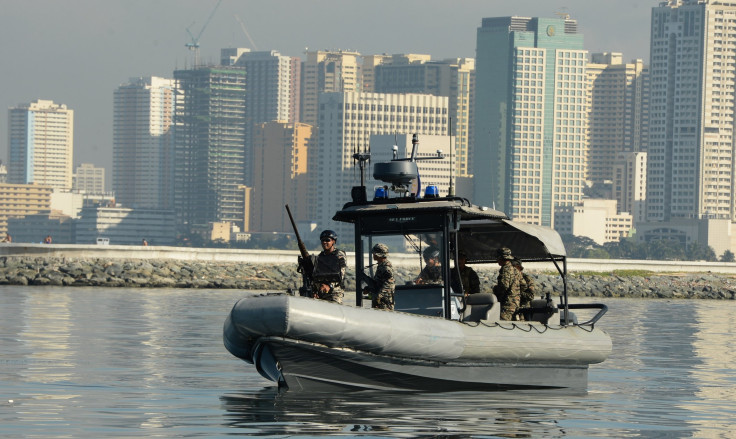ISIS In Philippines Kidnaps German Tourist: Abu Sayyaf Makes Millions From Kidnapping Foreigners

Abu Sayyaf, a jihadist terrorist group based in in the southwestern Philippines, has captured a German man in the Philippines and killed his companion. The militants that have pledged allegiance to the Islamic State group initially captured the couple, however, the man’s female companion was fatally shot after she attempted to escape, local news source The Inquirer reported Sunday.
A spokesperson for the group, Muammar Askali, allowed the man to speak with the media outlet. During the call, the man identified himself as 70-year-old, Juegen Kantner. He told the publication that the female’s name was Sabine Merz and that the two were taken at gunpoint from a yacht. Since his capture, Kantner has tried to reach out for help in order to get rescued “Pirates took our boat and they took us. We [asked] the [German] embassy to help us,” he told the Inquirer.
Merz was reportedly killed during the capturing process. “Unfortunately, the other one died,” Askali said during the phone call. “She tried to shoot us, so we shot her,” he stated.
A spokesperson for the regional military reported that the couple’s yacht was found along with the body of a naked white woman found on board will a bullet wound. The two were reportedly captured at gunpoint at Tanjung Pisut in Tawi-Tawi.
Abu Sayyaf militants say they've kidnapped one German tourist and killed his female companion https://t.co/jVe64ZTCmb
— TIME (@TIME) November 7, 2016
The German government has yet to verify the media reports. "We are trying right now together with Filipino authorities to determine (what happened)," Martin Schafer of the foreign ministry stated. "We have to see what the facts are, to see if what the media are saying is actually true," he said.
In the past, Abu Sayyaf has made millions of dollars from kidnapping foreigners. Within the first six months of the year, the group has managed to make $7.3 million from kidnappings and abductions. The U.S. government has warned foreigners who visit remote places and foreign hotspots of the risk of kidnapping in the central Philippines.
© Copyright IBTimes 2025. All rights reserved.






















